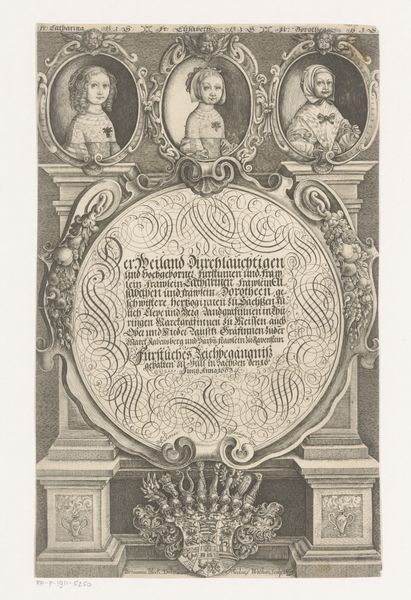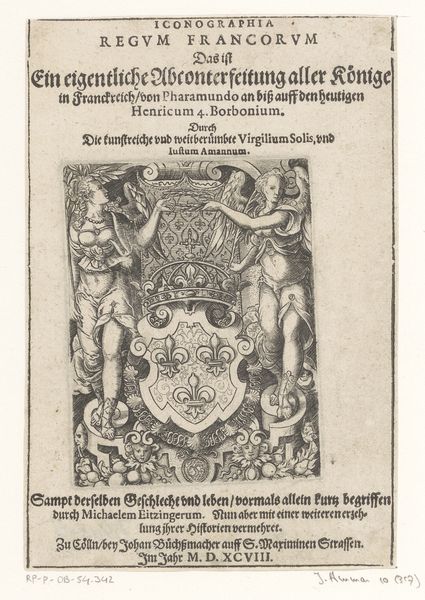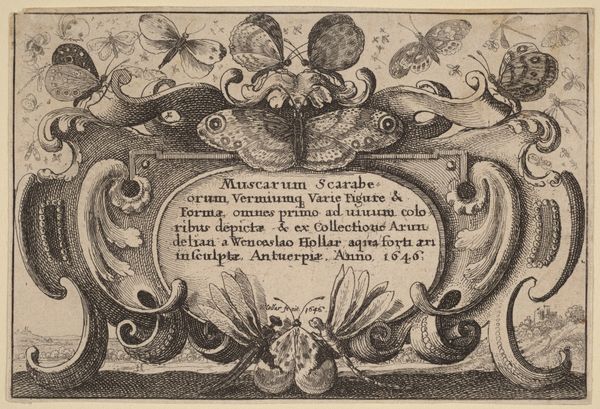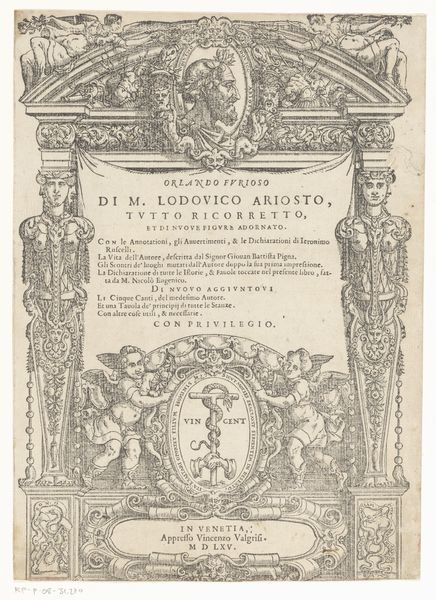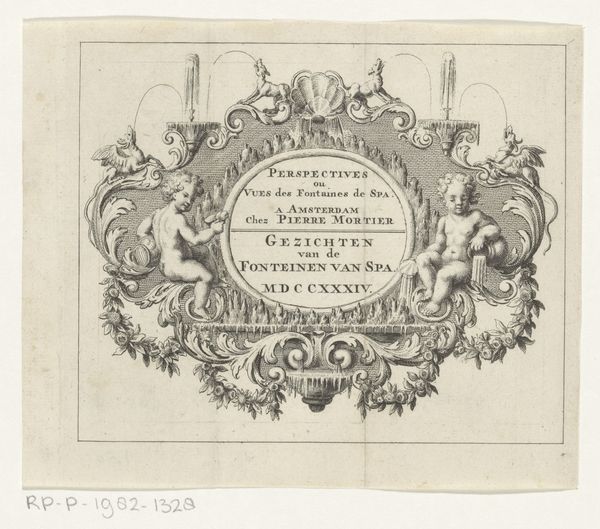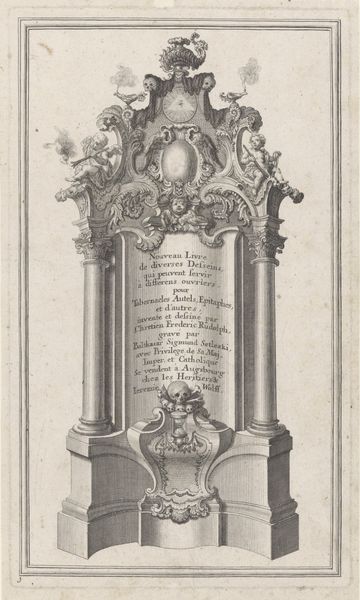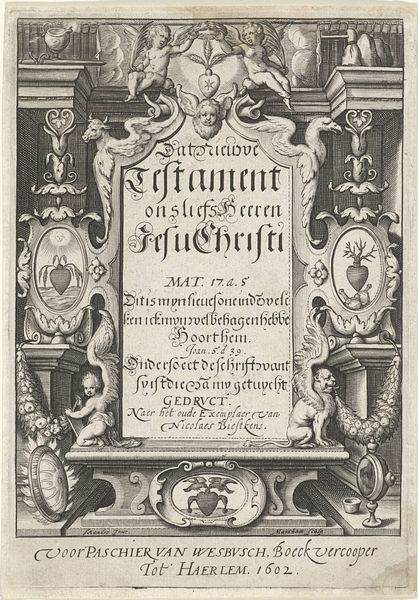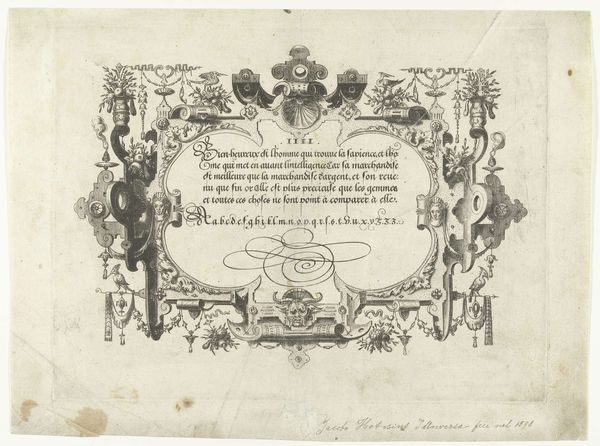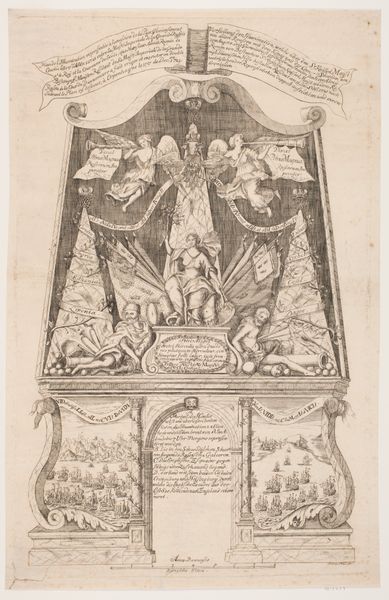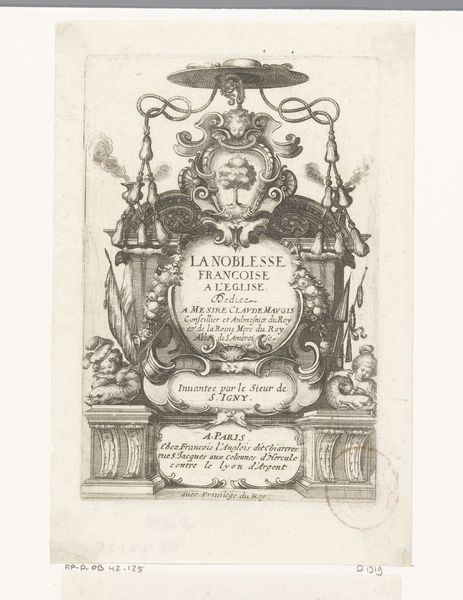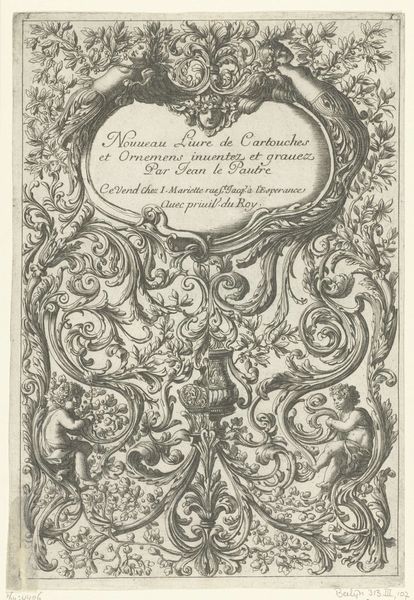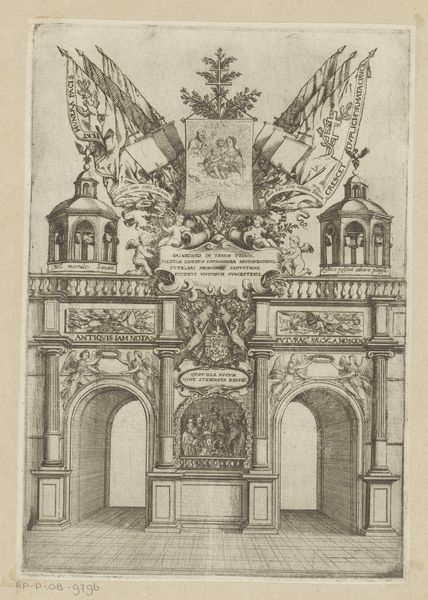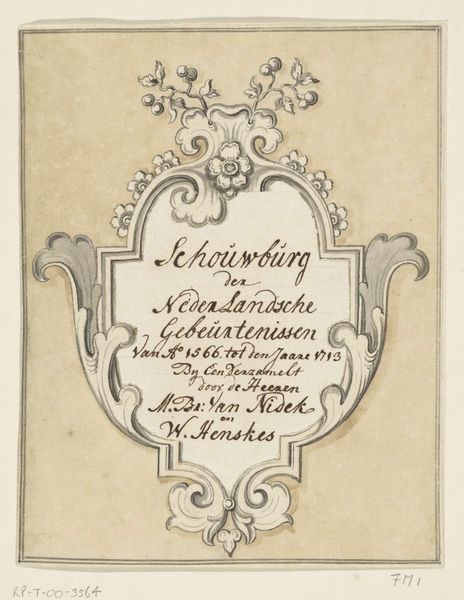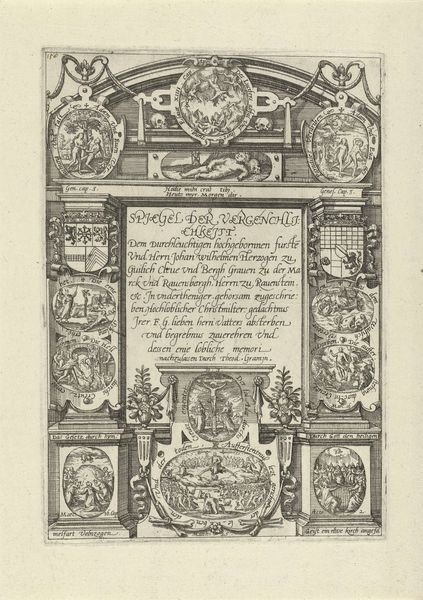
drawing, print, typography, engraving
#
drawing
#
baroque
# print
#
landscape
#
typography
#
engraving
Dimensions: Sheet: 5 1/2 × 4 5/16 in. (14 × 10.9 cm)
Copyright: Public Domain
Editor: So, here we have a title page from *Newes Lauberbuechlein*, dating roughly from 1628 to 1666, by Peter Aubry II. It's an engraving, with some drawing and typography elements, and it strikes me as an idealized landscape. How do you interpret this work? Curator: That's a great start. Beyond the idealized landscape, consider this print as a window into the societal structures of its time. The formal garden, meticulously planned and presented, speaks to a desire for control over nature, reflecting perhaps the hierarchies and power structures within the social order. How do you see the relationship between the natural world and the built environment represented here? Editor: I guess the garden feels very separate from the "real" world, like there's an attempt to domesticate nature. It’s less an observation of nature and more a stage set. Curator: Exactly! And who is this stage set for? Think about the role of gardens in aristocratic culture during this period. These manicured landscapes were not merely aesthetic spaces, but sites for display, for reinforcing social standing, and for enacting privilege. Can we then read the architecture and garden design not just as elements of beauty but also as markers of exclusion? Editor: I hadn't thought about that before, but now it feels much less idyllic and much more about power and control. The fact that it is the title page to a book also underscores this idea, since it can control what narrative or knowledge is received. Curator: Precisely. It’s essential to recognize how seemingly innocuous images can subtly uphold certain ideological viewpoints and exclude others. Considering art within its social framework unveils these inherent biases and invites a more critical engagement with its legacy. What have you learned from our analysis today? Editor: I'll definitely think twice before taking images at face value. Now, I want to interrogate everything for underlying societal assumptions. Thanks for a new perspective!
Comments
No comments
Be the first to comment and join the conversation on the ultimate creative platform.
